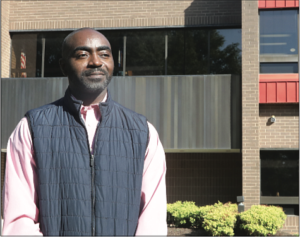 Introduction: For those unfamiliar with the Virginia Military Institute (VMI), disciplinary actions against Cadets include “demerits” recorded in their records, confinement to barracks, and “penalty tours” (PT) or a combination of those for misconduct ranging from minor infractions (uniform violations, dirty rooms) to major (drinking in barracks, disrespect to cadet officers, breaking VMI regulations).
Introduction: For those unfamiliar with the Virginia Military Institute (VMI), disciplinary actions against Cadets include “demerits” recorded in their records, confinement to barracks, and “penalty tours” (PT) or a combination of those for misconduct ranging from minor infractions (uniform violations, dirty rooms) to major (drinking in barracks, disrespect to cadet officers, breaking VMI regulations).
Cadets accumulating more than 75 demerits in a semester (80 for freshmen) are placed on conduct probation. Those with 100 demerits in a semester are recommended for suspension from VMI. Subject to Commandant staff approval, cadets march in a supervised formation, attend a study hall or labor in a “work detail” where each 50 minute session eliminates one PT.
Confinement physically restricts Cadets to the VMI barracks, without class privileges, except for limited official duties such as meals, classes, etc. For example, the highest (Penalty #1) receives a ”15-4-60”or 15 demerits, 4 months barracks confinement, 60 penalty tours (50 hours). The second most severe punishment (Penalty #2) receives a “10-4-55” or 10 demerits, 4 months barracks confinement, and 55 penalty tours (46 hours).
Amnesty releases all cadets from confinement and eliminates penalty tours. In some cases over VMI’s history, it expunged demerits from cadet records. In Virginia amnesty is the ultimate embodiment of the Governor’s authority as Commander-in-Chief of VMI, over all Virginia Military forces, and over the VMI Superintendent.
The following article originally appeared in The Cadet, a student-led publication at VMI, and is republished here with permission:
****
by The Cadet Editorial Staff
Editor’s note: The Superintendent and Commandant documents referenced are available in the online version of the article at www.cadetnewspaper.com
To many observers the Corps’ muted reaction to Governor Youngkin’s order granting amnesty to the Corps during the parade on April 10th came as a surprise given the traditional uproarious responses from Cadets in the past. It seemed to surprise, and possibly somewhat embarrass the Governor to the point he pointedly, and repeatedly, granted the Corp permission to “show emotion” at his announcement. Cadets were hesitant to react upon the announcement as they were told to maintain bearing if amnesty was granted, yet even the second attempt was somewhat lackluster. While this may have been a result of confusion on how to respond on the part of the Corps, it is somewhat representative of the diminished perception of amnesty’s legitimacy. To address Cadet perceptions of amnesty and the failure of the administration in some cases to fully absolve all Cadets of their crimes, it is necessary to examine the history of amnesty at VMI.
Reaching into the VMI archives back to the first mention of “amnesty” in 1919 supports this conclusion and reveals a traditional amnesty scope beyond not only the Governor but also one that, in application, provided meaningful incentives to those cadets who abided by Institute regulations. Continue reading →





 Introduction: For those unfamiliar with the Virginia Military Institute (VMI), disciplinary actions against Cadets include “demerits” recorded in their records, confinement to barracks, and “penalty tours” (PT) or a combination of those for misconduct ranging from minor infractions (uniform violations, dirty rooms) to major (drinking in barracks, disrespect to cadet officers, breaking VMI regulations).
Introduction: For those unfamiliar with the Virginia Military Institute (VMI), disciplinary actions against Cadets include “demerits” recorded in their records, confinement to barracks, and “penalty tours” (PT) or a combination of those for misconduct ranging from minor infractions (uniform violations, dirty rooms) to major (drinking in barracks, disrespect to cadet officers, breaking VMI regulations).  by Jon Baliles
by Jon Baliles
 by Kerry Dougherty
by Kerry Dougherty 



